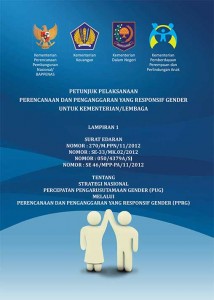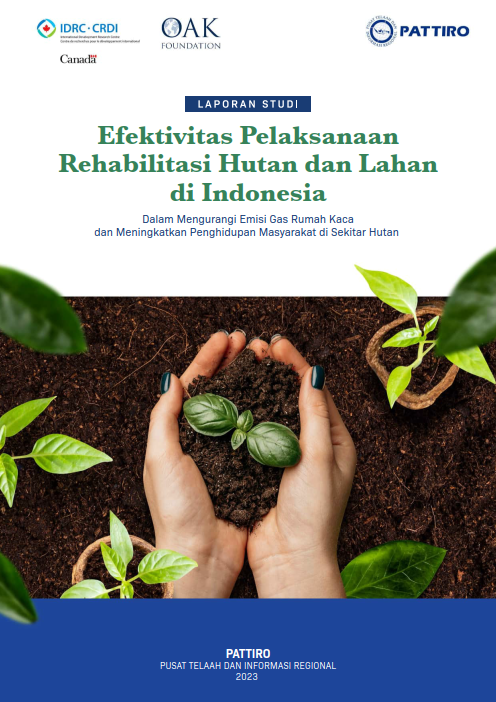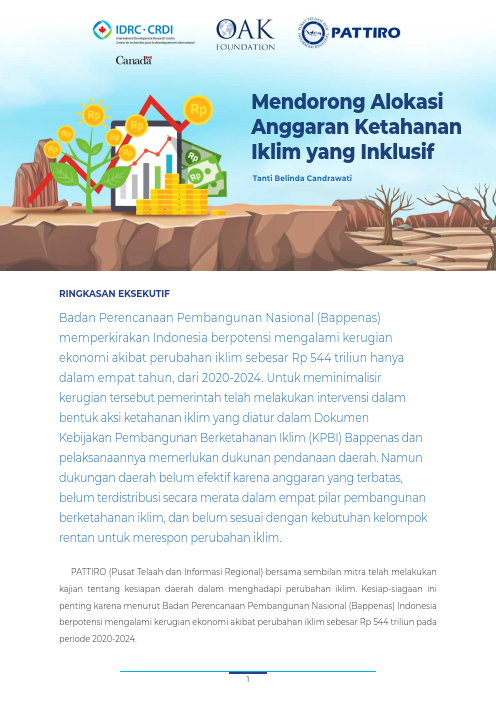
Gender mainstreaming (PUG) is a strategy built to integrate gender into an integral dimension of planning, formulation, implementation, monitoring and evaluation of development policies and programs. Implementation of PUG integration into the planning and budgeting cycle at both the central and regional levels is expected to encourage the allocation of development resources to be more effective, accountable and fair in providing development benefits.
PUG has become one of the 3 (three) national strategies contained in the 2010-2014 National Medium-Term Development Plan (RPJMN) in Book II Chapter I. This RPJMN has also included PUG policies in the planning and budgeting system, using disaggregated data in the analysis , contains gender indicators, and sets development targets that are gender responsive.
PPRG implementation has been regulated in Minister of Finance Regulation (PMK) Number 119/PMK.02/2009 concerning Guidelines for the Preparation and Review of Work Plans and Budgets of State Ministries/Institutions in 2010. Finally, provisions regarding PPRG are regulated in PMK Number 112/PMK.02/ 2012 regarding Guidelines for the Preparation and Review of Work Plans and Budgets of State Ministries/Institutions.
Specifically, PPRG is also a form of implementation of Performance Based Budgeting (PBK) which is the basic philosophy of the budgeting system in Indonesia, in which budget management uses gender analysis on input, output, and outcome in planning and budgeting, and integrates aspects of equity as a performance indicator, after considering economics, efficiency, and effectiveness. Thus, the Gender Responsive Budget (ARG) significantly strengthens the budgetary framework




